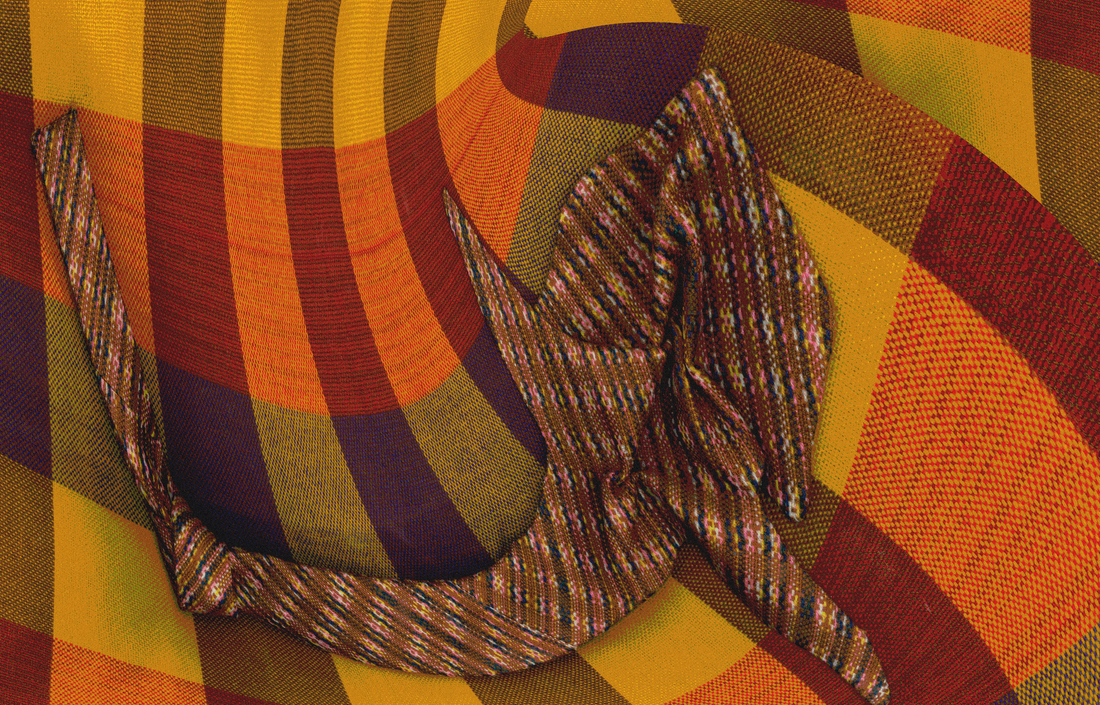
FROM THE DEPTHS: WEAVING IDENTITIES
We meet Rosa Avilez, a recent Royal College of Art Graduate, who talks to us about her background, inspiration and aspirations for her future as a textile practitioner.
Text by Rosa Avilez
I'm an artist and designer exploring cultural identity. My personal journey as a designer of British-Honduran heritage has influenced how I perceive ‘nationality’ and the concept of natural ‘borderless’ geographies. I draw parallels between Britain's emphasis on grand institutions of cultural significance and Mesoamerican indigenous heritage and the beliefs surrounding its flora, fauna and natural landscapes.
As a fashion design student living in a metropolis such as London, I began to see how my Honduran identity was often overshadowed by misconceptions of race and ethnicity and how Honduras was often typecast as poor and dangerous. This skewed narrative, which prevails beyond Central America impacts individuals and impedes local opportunities. While Honduras is one of the poorest in Latin America, it is known for its rich natural resources, including minerals, coffee, tropical fruit, sugar cane, and a growing textiles industry, which serves the international market. My work therefore sought to explore the many facets of its culture and people.
The Project
My exploration into Honduran culture led me to connect with 'Telares el Cacao', a weaving cooperative based in Intibucá run by local Lencan women. Over the past two years, I have had the opportunity to collaborate with them and to work with Doña Enemecia, an entrepreneurial indigenous woman, who founded the first cooperative in the area. She has provided jobs for women in the locality, since 1985, incorporating vibrant contemporary checked designs into the weaves. This initiative transformed a region that was solely reliant on agriculture to one that is driven by textiles and embraced by Hondurans.
In my interview with Doña Enemecia, she described her role as one of empowering women, through helping them become financially independent. This has helped women to finance their children through school and higher education. She proudly recounts the many women who recently graduated in spite of challenging circumstances. This is especially noteworthy in a country with high femicide rates and restrictive reproductive rights. Stories like this from small cooperatives offer hope.
My engagement with Telares el Cacao inspired me to personally learn weaving, starting with the cooperative and continuing at the Royal College of Art.
In my practice, I focused on the Honduran natural world, using weaving to bridge the gap between my Honduran heritage and me. My project, titled 'From the Depths: Weaving Identity,' I deliberately spotlight positive aspects of Honduran culture. I employed textiles from Telares el Cacao to create ensembles that convey a progressive way of life, inspired by vibrant landscapes. A quote from a Honduran nurse inspired the weaving of two of the textiles: "We may be poor in money but we are rich in nature."
Sound Weaving
As I learned to weave, I reflected on my connection with the Honduran landscapes, often viewing it digitally due to distance. I compared my digital data to weaving data, contrasting it with the bird songs in the jungles near Pico Bonitod. I recorded these soundscapes and, influenced by the cooperative's use of landscape colours, wove the sounds. Collaborating with Antoine Hacheme, a programmer, we created a program to translate soundscapes into weaving drafts. I presented these woven soundscapes as flags, symbolising migration and borderless identity.
Going forward
I aim to continue collaborating with Telares el Cacao, and plan to introduce sound weaving workshops using their looms. Sustaining the cooperative is crucial as it provides them with a livelihood. By creatively utilising technology, I aim to elevate purpose in sharing community stories through traditional craft. My goal is to create meaningful pieces of clothing and textile fine art pieces that relate stories of empowerment and financial independence for women from Honduras. This approach is the very opposite of the usual narratives of the undercurrent of violence. I recognise that as an artist, I am able to reshape narratives. In a patriarchal culture such as Honduras, my aim is to amplify the weavers' voices and to communicate a future of positive change.
Text and images courtesy of Rosa Avilez
Find out more:
@rosaavilez
rosaaavilez@hotmail.co.uk
